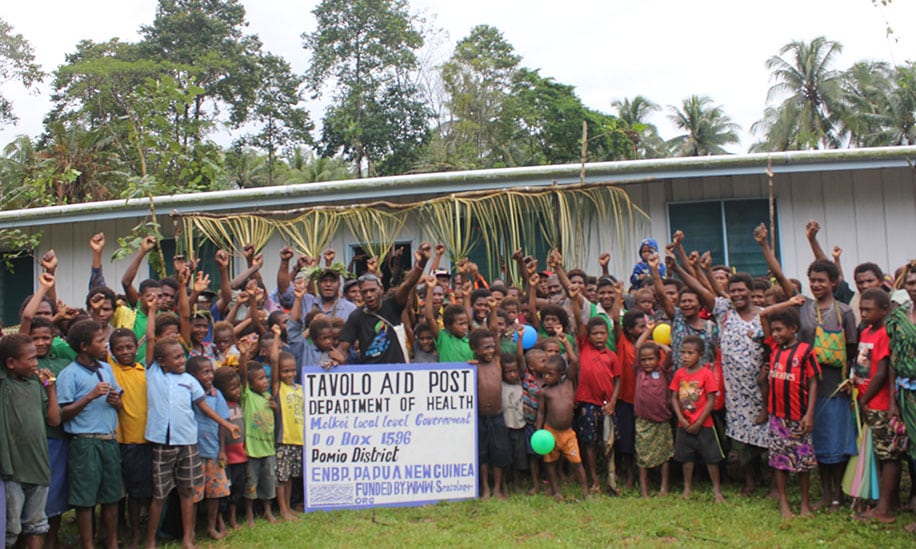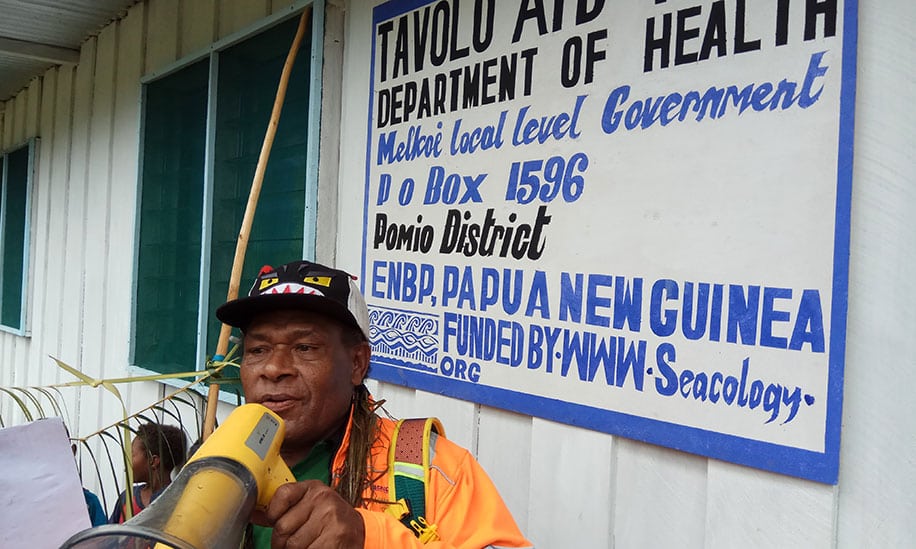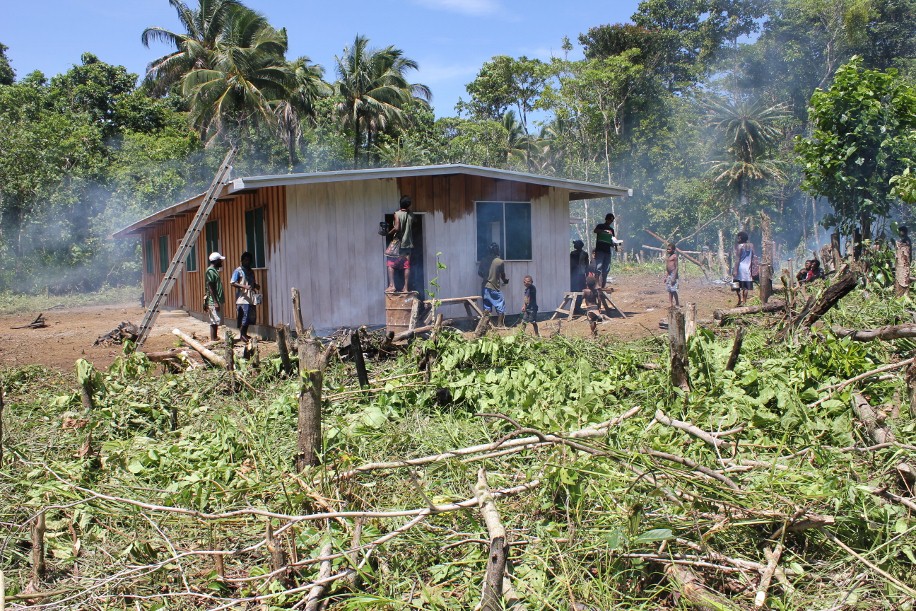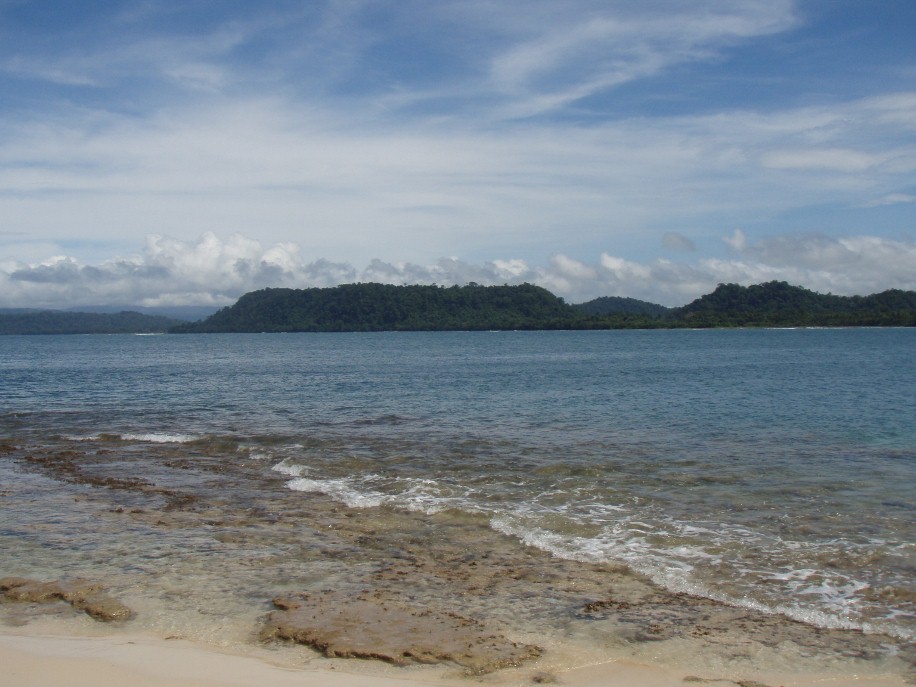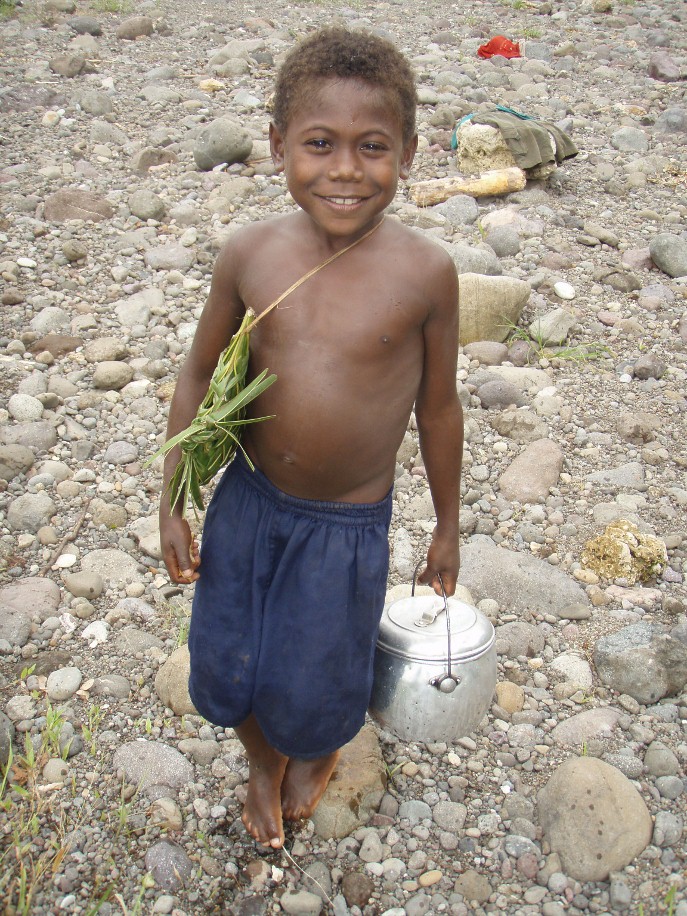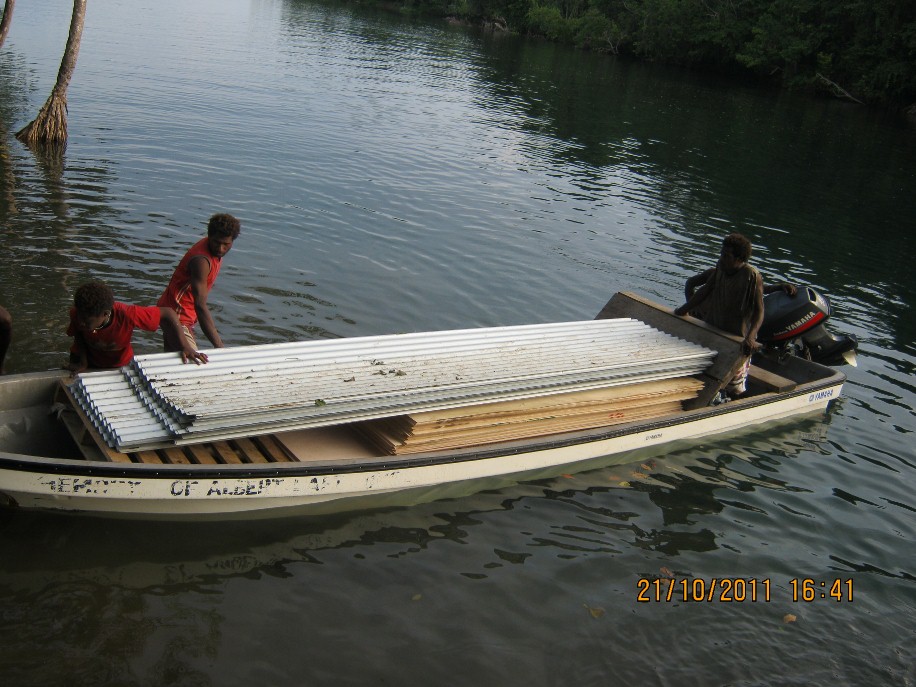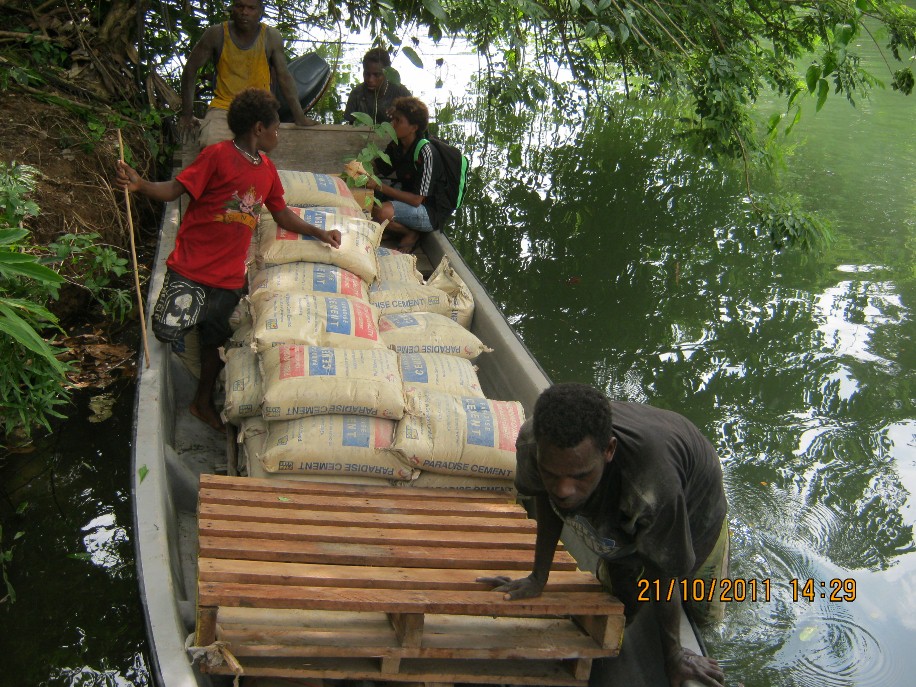Tavolo is situated in the Pomio District of East New Britain Province in Papua New Guinea. The area has extensive fringing coral reefs on the coast and a pristine forest on the mainland. The primary threats to these two ecosystems are large-scale logging and overfishing. In 1997, an eight-square-mile Wildlife Management Area was gazetted under PNG’s Flora and Fauna Act. The community, along with local NGO Melkoi Local Environment Foundation, is working to extend the conservation area, to cover a total of 124 square miles.
The community would like to set up a 988-acre no-take reef and lagoon conservation area. The people of Tavolo, with the help of another local NGO, Mama Graun Conservation Trust, are committed to protecting their environment. They will continue to refuse large-scale development proposals.
Approximately 500 people live around the Tavolo area in small hamlets. It takes about a day’s walk to get the nearest government station for medical care, and the trip requires crossing rivers, making it too difficult for community members to reach. Seacology is providing funding to build a community health clinic. In return, the community will establish a 988-acre no-take coastal marine conservation area.


